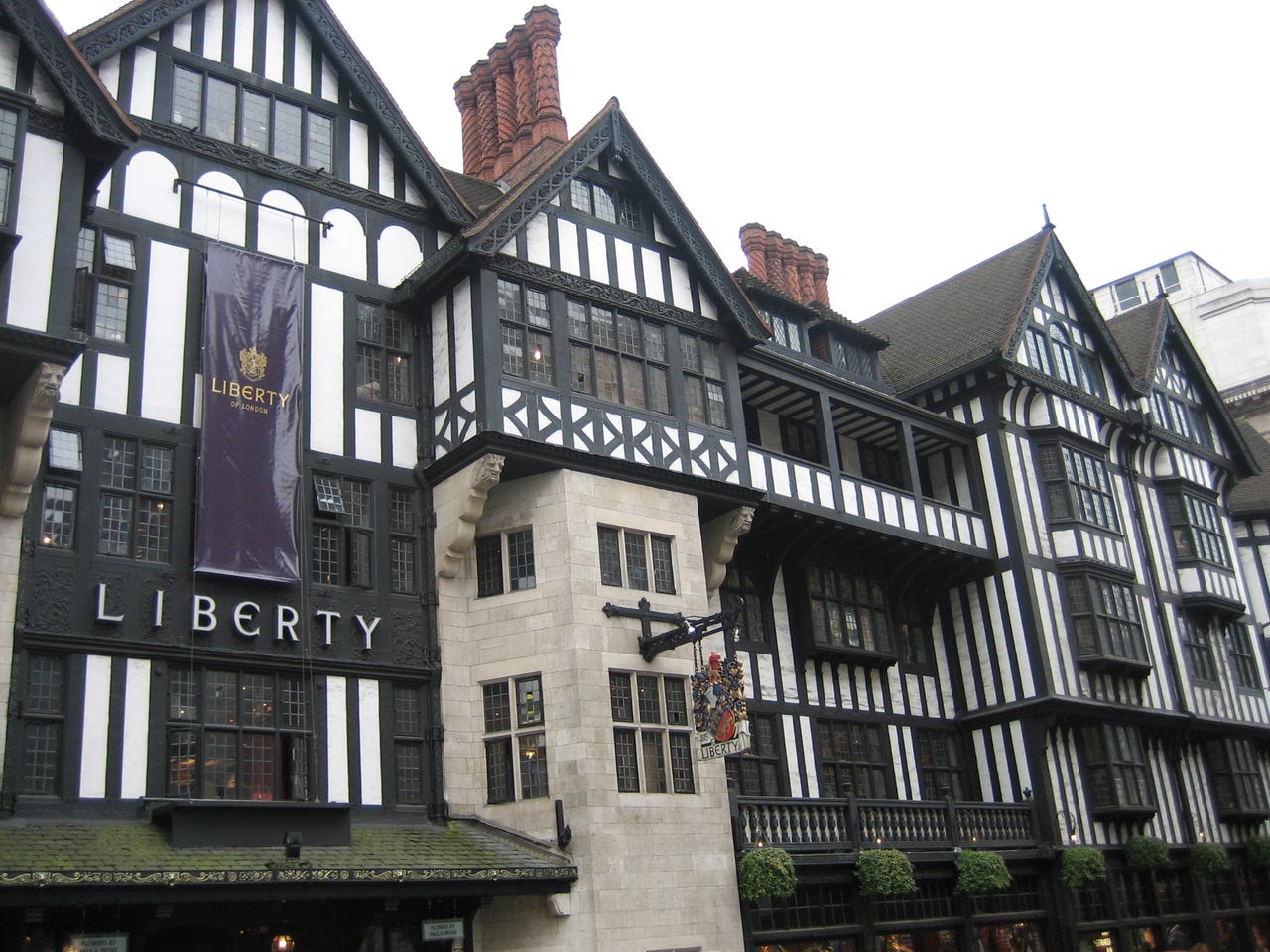How Liberty is remaking the department store for the internet age


"We've got to think about how the store can work in the future," says Liberty tech director Martin Draper.
The rise of mobile commerce means traditional opening hours are a thing of the past and successful retailers must provide great services and experiences across multiple channels, both online and offline.
"We've got a longer period to interact with our customers now -- and that's 24 hours to get it right or get it wrong," says Martin Draper, technology director at luxury retailer Liberty, speaking at a recent CIO roundtable event held by technology specialist HSO.
Independent research consultancy Martec International reports mobile commerce now accounts for as much as 46.1 per cent of UK retail sales. Yet Martec managing director Brian Hume suggests a shift towards mobile commerce is still "a five- to ten-year journey" for most retailers.
Draper agrees with this sentiment and suggests fundamentals, rather than mobile strategies, are still at the core of CIO thinking. "Retailers are having to reconfigure legacy systems so that they have one view of their stock," he says.
More Alexa
Overcoming that legacy bind remains a significant challenge for many organisations. The average ERP system that gets replaced in a retail business is 14 years old, according to research from Martec. Draper recognises the scale of IT concerns and suggests CIOs also face significant people issues.
"Technology is a challenge, but legacy thinking is more of a problem," he says. "We need our people to recognise that success is not about serving customers through a single channel any more but about managing all the different ways that consumers want to shop."
The good news, says Draper, is that many retailers have already made strong steps towards mobility, particularly around the creation of apps for brand loyalty programmes. He also believes moving beyond that first stage and towards integrated ecommerce is a major step for most retail CIOs.
"Forward-thinking businesses mix channels and ecosystems and allow people to live their lives in many different ways; you can, for example, now order detergent through your music system," he says, referring to Amazon's developments around the Amazon Echo.
"Traditional retailers have to think about how they operate. If you don't take care of the back office, you can't deliver on the promise of mobility. In the case of many retailers, back office developments need to catch up with capability first, so that they can provide the experiences that modern consumers demand."
Placing mobility at the heart of the business
Draper says digital transformation is helping to create a change in perception. His firm has used the cloud to launch a new ERP platform through HSO in less than a year. Such rapid deployment helps demonstrate the power of IT-led change to other c-suite executives.
"Technology used to be the obstruction -- people had to think about upgrades first," he says. "Now, technological capability is starting to outpace business thinking in terms of capability. Digital change presents a great opportunity for executives who want to think about smarter retailer."
One of the keys to a successful shift, says Draper, is to take an integrated approach to transformation. "Liberty has a business strategy -- mobile is not separate," he says.
"We want to take a beautiful, unique product, such as the Liberty print archive, and take that to an international market," he says. "That has to happen across all channels and not just through the store in London."
Draper believes understanding the customer persona is key to a successful business strategy that includes mobility. "As an organisation, we've got to figure out what part of our brand is most valuable in a mobile environment," he says.
"We know we have a big audience in Japan who is extremely mobile, for example. We'd be mad not to tap into that market. The reality is that we're starting to understand who the new Liberty customer is and how that profile will drive our business strategy."
Focus on how mobility will develop in the future
Mobile commerce is increasingly important for retailers but it is far from the only channel to market. A combination of routes, both online and offline, remain significant. Martec research suggests some retailers see their online sales rates drop by two or three per cent when physical stores close in a particular location.
Draper confirms the physical store remains critical for retailers, particularly in the case of luxury department stores such as Liberty. "We've got to think about how the store can work in the future," he says. "The store is becoming an experience. We've got to maximise the value of our brands in totality."
Customers who value a high quality of service, suggests Draper, will expect similar excellence online. "We have to provide innovation in experience," he says. "We have to do more than simply list a product online and sell it to you."
Advanced technology will play a key role. Draper points to developments in the Internet of Things and suggests sensors could help support new levels of customer engagement. He envisages a situation where specific products, such as makeup, are automatically reordered on the customer's behalf.
"For retailers, IoT and other digital technologies could allow us to offer unique propositions in the future," he says. "The ability to use artificial intelligence to have a conversation in real time in multiple languages, for example, will enable huge breakthroughs in customer service."
The aim for retailers, suggests Martec's Hulme, is to use technology to establish the right balance between being creepy and comfy. "Customer service builds loyalty," he says. Draper also recognises the scale of the challenge.
"The opportunity is to use multiple channels to present a single brand to the point that we build a trusted relationship that offers longevity and profit," he says. "We can't do that by just looking at silos of channels; that's not how our customers want to experience us a retailer anymore."